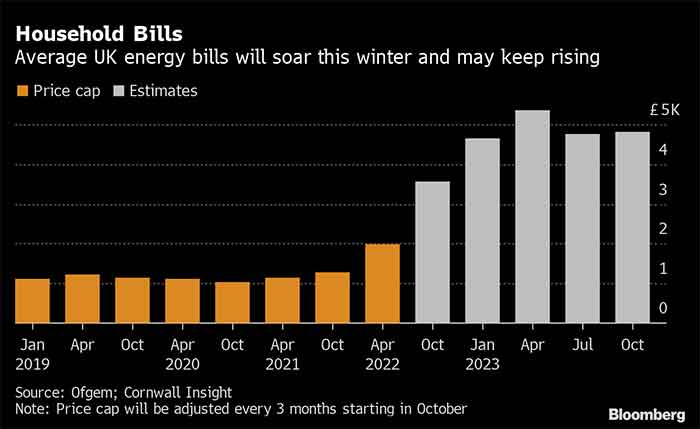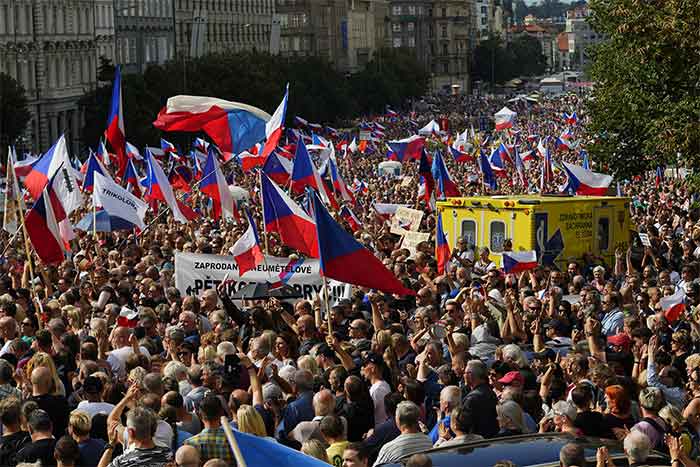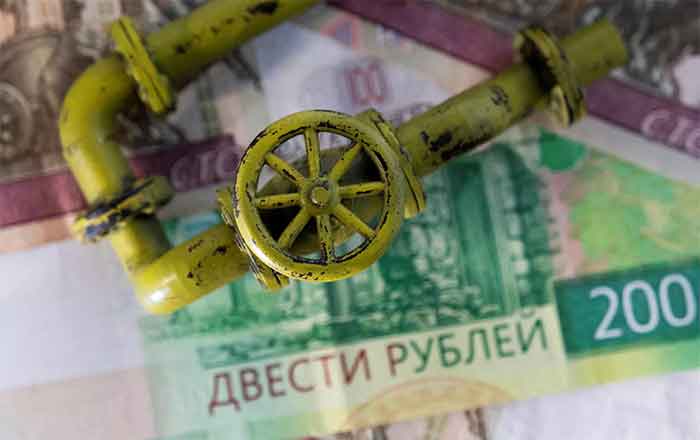
Citing a leaked national strategy paper the Sunday Times reports: UK police fear a sharp rise in certain categories of crime and a risk of civil unrest this winter amid a cost of living and energy crisis.
The document compiled by police chiefs warns that “economic turmoil and financial instability” may lead to an increase in offenses such as shoplifting, burglary, vehicle theft, online fraud and blackmail. More children are likely to join drug gangs and more women may become subject to sexual exploitation.
Contingency planning is reportedly underway to deal with the possible fallout from the cost of living crisis.
“Prolonged and painful economic pressure” could create a risk of “greater civil unrest,” similar to the London riots of 2011, the paper is quoted as saying.
Police themselves may also be affected. “Greater financial vulnerability may expose some staff to higher risk of corruption, especially among those who fall into significant debt or financial difficulties,” the paper said.
The gloomy forecast was revealed the day before the UK finds out the name of its new prime minister. Both candidates, Foreign Secretary Liz Truss and former chancellor Rishi Sunak, have pledged to take decisive action to address soaring energy costs.
While Sunak has promised targeted support for the poorest in society, frontrunner Truss has not revealed the details of her strategy.
Carbon Paper
Civil servants have been busy with contingency planning. According to the Financial Times, Whitehall officials are now compiling stocks of carbon paper to reproduce documents in a worst-case scenario of winter blackouts.
Cooking
The Daily Mail has reported that this winter could see people told not to cook until after 8pm and not to use washing machines or dishwashers between 2pm and 8pm as part of energy rationing. Pubs may be ordered to close at 9pm and schools could switch to three-days weeks.
The energy crisis in Europe has been exacerbated by sanctions on Russia over the Ukraine conflict and a decrease in Russian natural gas supplies. While the UK is not directly dependent on Russia for fuel, it is still suffering. The typical annual UK household fuel bill is expected to rise to around £3,500 from October, three times higher than last year. According to the Bank of England’s latest report, inflation will soar to 13% in October and from the fourth quarter of this year, the UK is projected to enter recession.
Risk Of Civil Unrest Rising Globally
Countries worldwide are experiencing an “unprecedented” rise in the potential for civil unrest, according to a fresh study by Verisk Maplecroft, a UK-based global strategic consulting firm.
Over 100 nations experienced an “increase in risk” of civil unrest in the last quarter, the company said in its Civil Unrest Index (CUI) published on Thursday. The index is derived from a set of various surveys assessing different factors, such as inflation and government mechanisms to overcome or quell conflicts, as well as the overall impact of unrest.
Out of 198 nations worldwide, only 42 saw the risk of civil unrest decreasing in the surveyed period, while 101 of them saw it increasing. The situation in the rest remained unchanged compared to the previous quarter. The company linked the rising civil unrest risk with “the impacts of inflation on the price of staple foods and energy.”
“The impact is evident across the globe, with popular discontent over rising living costs emerging on the streets of developed and emerging markets alike, stretching from the EU, Sri Lanka and Peru to Kenya, Ecuador and Iran,” it said in a press release.
Europe “stands out” in the ranking negatively, having experienced a rise in the risk of civil unrest “in large part due to the fallout from Russia’s invasion of Ukraine,” the company said. The situation on the continent is expected to get worse in the next six months and “Bosnia and Herzegovina, Switzerland, the Netherlands, Germany and Ukraine are all among the states with the biggest projected increases in risk,” it added.
The registered uptick in civil unrest risk is the largest since the CUI was first released by the company back in 2016.
“With more than 80% of countries around the world seeing inflation above 6%, socioeconomic risks are reaching critical levels. Almost half of all the countries on the CUI are now categorized as high- or extreme-risk, and a large number of states are expected to experience a further deterioration over the next six months,” Verisk Maplecroft noted.
The global trend is unlikely to change anytime soon, the company warned. “Only a significant reduction in global food and energy prices can arrest the negative global trend in civil unrest risk. Recession fears are mounting and inflation is expected to be worse in 2023 than in 2022,” it explained.
Germany At Risk Of Mass Unrest
Germany could be facing mass unrest this autumn and protests over the energy crisis could be hijacked by extremists, a regional head of the country’s domestic security agency has said.
Stephan Kramer, who heads the BfV in the state of Thuringia, said Germany must be prepared for the possibility that “legitimate” protests over energy and economic crises could be “infiltrated by extremists.”
He told ZDF broadcaster on Wednesday that demonstrations could be expected over “gas shortages, energy problems, supply difficulties, possible recession, unemployment, but also the growing poverty right up to the middle class.”
“Extremists” who could hijack the protests include the so-called “lateral thinkers” who rallied against coronavirus restrictions during the pandemic, and right-wing activists who have already been stirring the mood on social media in recent months, Kramer said.
If such scenarios materialize, “we are likely to be confronted with mass protests and riots,” the official warned.
Due to Covid-19 and the economic fallout from EU sanctions on Russia over the conflict in Ukraine, “we are dealing with a highly emotionalized, aggressive, future-pessimistic mood in society, whose trust in the state, its institutions and political actors is fraught with massive doubts,” he explained.
“This highly emotional and explosive mood could easily escalate,” the security chief said, adding that if this happens the clashes seen by Germany during the pandemic will “probably feel more like a children’s birthday party” by comparison.
According to the official, effective crisis management and cooperation between political forces on all sides of the spectrum would be required to avoid what he called a “hot autumn.”
But the most important factor in avoiding unrest and maintaining social peace should be restoring the confidence of Germans in the authorities, he added.
Kramer also advised the people to “think carefully about which protests and demonstrations you join, or better stay away from them altogether, so as not to support the enemies of democracy.”
Thousands Protest In Prague To Oppose Anti-Russian Sanctions, Arms Supplies To Ukraine
A report by The New Voice of Ukraine said on September 4, 2022:
The Prime Minister of the Czech Republic, Petr Fiala, has spoken out regarding the protestors demands.
According to police estimates, the number of protesters counted about 70,000 people, and the rally was peaceful.
The slogan of the event was “Czech Republic in the first place.”
Demonstrators held Czech flags, as well as placards against the EU and NATO, Prime Minister Petr Fiala, rising energy prices, and calls for neutrality and dialogue with Russia. Anti-vaccination slogans were also heard during the protest.
The event was organized by several political parties and organizations, including the Communist Party of the Czech Republic and the Eurosceptic Tricolor Citizens’ Movement.
Protesters were demanding the resignation of the current coalition government of conservative Prime Minister Petr Fiala, whom they criticize for following pro-Western policies and allegedly paying more attention to war-torn Ukraine than to his citizens.
At the same time, the organizers of the rally wanted the government to allow their experts to negotiate with Russia regarding the purchase of gas and oil.
“The purpose of our demonstration is to demand change, mainly in solving the issue of energy prices, especially electricity and gas, which will destroy our economy this fall,” event co-organizer Jiří Havel told news website iDNES.cz.
“The Czech Republic needs a Czech government. Fiala’s government may be Ukrainian, maybe Brussels, but not Czech,” said the head of Tricolor party, Zuzana Majerová Zahradníková.
According to her, the government should lower taxes, in particular VAT, and cancel anti-Russian sanctions that harm Czech businesses. She also demands an end to the supply of weapons to Ukraine.
The event organizers are planning another demonstration on Sept. 28.
Prime Minister Fiala, who heads the center-right five-party coalition, said the Wenceslas Square protest was organized by “pro-Russian forces close to extremist positions” whose interests conflict with those of the Czech Republic.
“It is clear that Russian propaganda and disinformation campaigns appear repeatedly on our territory, and some people simply fall for them,” Fiala said.
He added that everyone has the right to express their opinion and hold demonstrations.
“From the events that I have had the opportunity to see so far, they indicate strongly pro-Russian sentiments, and, in my opinion, this does not correspond to the interests of the Czech Republic and our citizens,” Fiala added.
The protest in central Prague came a day after parliament failed to support a vote of no confidence in Fiala’s coalition amid opposition claims of inaction on inflation and rising energy prices.
Another report said:
Tens of thousands of protesters gathered in central Prague on Saturday for a march dubbed ‘Czech Republic First,’ urging the government to resign over soaring energy prices and inflation, and to drop anti-Russia sanctions.
According to police estimates, some 70,000 took part in the rally, with the organizers putting the figure at 100,000. The event brought together people from across the political spectrum, with the Communist Party and right-wing Freedom and Direct Democracy Party taking part.
“The aim of our demonstration is to demand change, mainly in solving the issue of energy prices, especially electricity and gas, which will destroy our economy this autumn,” one of the event’s co-organizers, social democrat Jiri Havel, told local media.
The protesters demanded that the Czech Republic take a neutral military stance, and secure direct contracts with natural gas suppliers including Russia. They also condemned the government for supporting EU sanctions against Moscow, adopted in multiple waves since the start of the Russia-Ukraine conflict.
“The best for the Ukrainians and two sweaters for us,” one of the banners displayed at the event read, referring to the rising heating costs and potential energy cuts in winter.
The protest came a day after the government survived a no-confidence vote over the same issues, with the opposition accusing it of inaction in the face of soaring energy prices and inflation.
Czech Prime Minister Petr Fiala, who leads a center-right coalition, was quick to accuse the protesters of acting against the country’s interests, implying the Kremlin might have had a hand in the unrest.














































